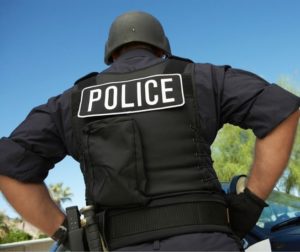4 Common Mistakes Made by Police
 Police officers are supposed to protect and serve the public, but everyone makes mistakes, including the most professional officers. These mistakes can often be used to help reduce your charges or even get your case thrown out entirely. If you would like to know more, check out these four common mistakes made by police.
Police officers are supposed to protect and serve the public, but everyone makes mistakes, including the most professional officers. These mistakes can often be used to help reduce your charges or even get your case thrown out entirely. If you would like to know more, check out these four common mistakes made by police.
1. Illegal Stops
An officer can’t just pull you over for no reason; they need reasonable suspicion. Therefore, if you are following all the laws of the road, an officer can’t just pull you over for no reason. However, if you are swerving, speeding, etc., they now have reasonable suspicion to pull you over. For example, just because an officer sees you leaving a bar, they can’t pull you over to see if you’re driving drunk. They would need to see signs of drunk driving first like swerving to lawfully stop you.
Reasonable suspicion is enough for an officer to stop you, but it’s not enough to make an arrest or further detain you. In the above example, if the officer did legally stop you after seeing you swerve, they can’t continue to detain you after you pass a Breathalyzer test.
Roadblocks are an exception to this rule. Officers can set up roadblocks to catch drunk drivers or to look for suspicious criminals in the area.
2. Illegal Searches
Whether the officer pulls you over or shows up at your house, they may want to search your car, person, or property. However, the Fourth Amendment of the US Constitution protects you against unlawful search and seizures. In fact, there are only four instances in which an officer can legally search.
First, you can give the officer permission to search, making it legal. Second, if the officer has probable cause, they can search. Perhaps an officer pulls you over for suspected drunk-driving, and they see an open bottle of alcohol in your car. In this case, they can probably legally search the vehicle. Third, an officer can search if they believe they may be in danger without a search. Last, if you get arrested, an officer can search you for evidence related to the crime.
3. Failure to Read Miranda Rights
If you’ve ever seen any cop show, you’ve heard an officer telling someone their Miranda rights as they are being arrested. Miranda rights are not protected by the constitution, so if an officer does not read you the Miranda rights, that doesn’t mean the case is immediately tossed out. However, the Miranda warning is still important because it informs you of your Fifth Amendment right against self-incrimination.
This means you have the right to remain silent and to have an attorney, even if you can’t afford one. It also means anything you say to the police can be used against you. In addition, police only have to tell you your Miranda rights if you are in custody and about to be interrogated. Therefore, when you first get arrested, the officer doesn’t need to give you your Miranda rights even though anything you say or do during the arrest could still end up being used against you.
4. Officer Misconduct
Police officers are only human, and humans make mistakes. When an officer makes a mistake, however, it can be detrimental, especially when it involves assault. If an officer approaches you, they have the right to protect themselves and the duty to protect others. However, they do not have the right to use excessive force.
For example, if you are unarmed and snooping in the window of a closed store, an officer has the right to approach you and demand to know what you’re doing, but if they tackle you or shoot at you, that’s excessive force. On the other hand, if you have a weapon and are attacking another person, tackling you or shooting to wound probably won’t be considered excessive force.
If an officer pulls you over without reasonable cause, performs an illegal search, doesn’t read you your Miranda rights before an interrogation, or uses excessive force on you, you need to talk to your attorney. In many cases, these mistakes can be the difference between jail and getting your case thrown out. For more information, contact us at Carl L Britt, Jr, Attorney at Law today.
